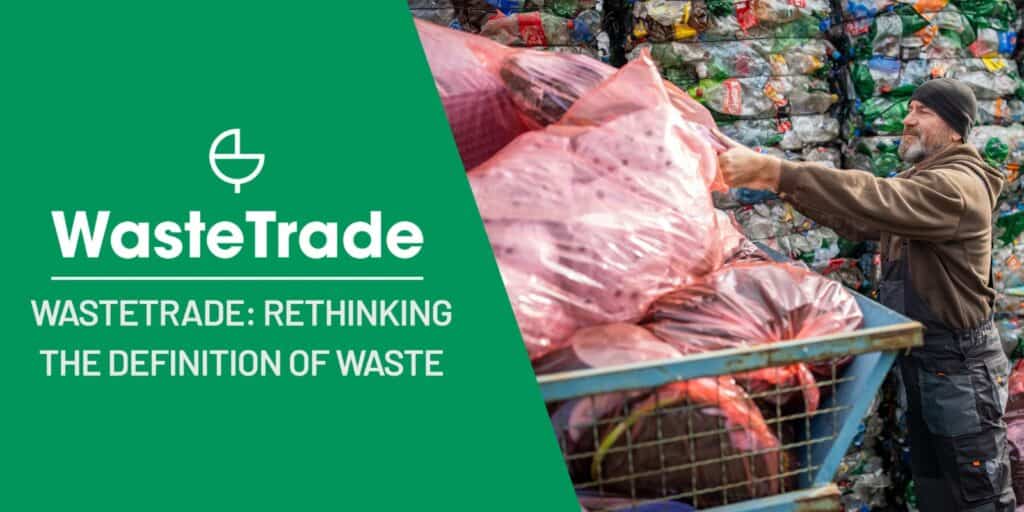Aug 23, 2023
What is Waste? Rethinking Our Waste Definition

Evolution of the Waste Definition
The Chartered Institution of Wastes Management (CIWM) emphasises the pressing need to reconsider the current waste definition. As the resources and waste sector has progressed, newer and more nuanced management techniques have emerged. Unfortunately, the prevailing EU definitions hinders us in realising their full potential.
In the past, waste was defined using terms such as “sanitary” and “cleansing”, as presented in the Public Health Act 1848. Over time, the terminology shifted, with “refuse” becoming the go-to term to describe items that were discarded. It was only in 1975 that the European concept of “waste” was introduced.
Today, the Definition of Waste is set out under Section 75 of the Environmental Protection Act (EPA) 1990, which has been further revised by the inclusion of Section 75A[1]. This definition is predominantly modelled on the 2008 EU Waste Framework Directive (WFD) definition presented in Article 3(1). The WFD states that, “‘waste’ means any substance or object which the holder discards or intends or is required to discard”.
However, it also needs to be interpreted in line with Article 2’s list of exclusions, which includes things such as radioactive waste, decommissioned explosives, and non-hazardous agricultural and forestry materials.
The Role of End of Waste
The concept of “End of Waste” (EoW) plays a pivotal role in determining when a material is no longer subject to waste controls. This is essential to encourage the continued use of resources and to support the circular economy. The criteria that dictate when a material achieves EoW status are detailed in Article 6 of the Waste Framework Directive, further amended in the UK by Section 75A of the EPA 1990.
However, no current plans from the government indicate a desire to modify these definitions. Though, with the UK’s departure from the EU, the opportunity for change might emerge in the future.
Waste Recycling
There are various challenges and concerns surrounding the definition of waste and the status of EoW. Issues range from waste crime and misclassification to hesitancy to adopt a circular approach due to the consequences of potential errors.
For instance, materials remaining after manufacturing processes can be repurposed, but the stigma attached to the “waste” label they carry creates barriers to their reuse. It’s crucial to strike a balance between protecting the environment, managing waste efficiently, and preventing waste-related crimes.
While the criteria in Article 6 of the Waste Framework Directive provides some guidance, businesses still call for clarity as the overall ambiguity has led to numerous court cases.
Recycling and Waste: A Historical Perspective
Historically, the need to manage waste has always existed. From the late 18th Century, when waste cluttered the streets of cities, to the modern practices of waste segregation, waste management has been a persistent concern.
The circular economy, in essence, isn’t a novel concept. In the 1750s, for instance, horse dung was collected from streets for land improvement.
Initial definitions of waste were stipulated in Section 30(1) of the Control of Pollution Act 1974, which evolved over time. The EU then introduced further definitions in its directives; the most notable change was in 2008 with the removal of the reference to Annex I, which provided a list of waste categories.
The WasteTrade Perspective
From the viewpoint of WasteTrade, the leading global marketplace specialising in the trading of waste commodities, the current challenges in waste management underscore the pressing need for a more adaptable and comprehensive waste definition. In an era where sustainability and environmental consciousness are paramount, clinging to outdated definitions is a hindrance to progress.
To truly embrace and implement a circular economy, it’s essential that we undergo a paradigm shift. Instead of viewing materials solely through the lens of disposal, we should be proactively identifying opportunities for their reuse, repurposing, and remanufacturing. Such a mindset doesn’t just reduce waste, it actively taps into a reservoir of potential resources that have, until now, been largely overlooked.
By realigning our approach, we are not only making strides in resource management but also unlocking a wealth of new business opportunities. Innovative industries and sectors can emerge, centred on the principles of repurposing and recycling. Such industries can contribute significantly to economic growth while simultaneously reducing environmental footprints.
Furthermore, the environment and the economy are intertwined. A sustainable future doesn’t just translate to a healthier planet but also to more sustainable economic practices. As staunch advocates for recycling, WasteTrade believes that it’s imperative for definitions, regulations, and industry practices to be in harmony. The ultimate objective should always be to push the boundaries of what’s possible in recycling, ensuring maximal material recovery and minimal waste – ideally, zero. This not only safeguards our planet for future generations but also ensures a robust and resilient economy that thrives on sustainable principles.





